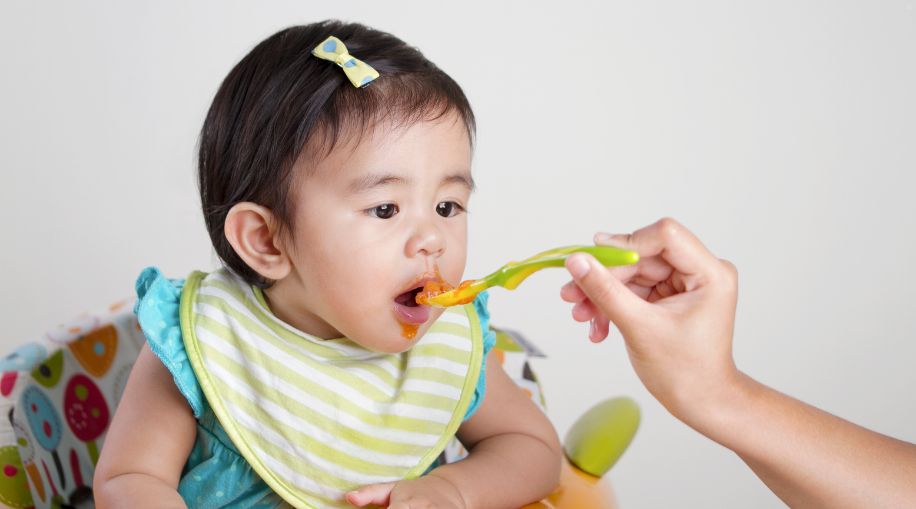Essential Nutritional Tips
Taking care of a baby means making smart choices about what they eat. At first, babies rely on milk for most of their nutrition. When they start trying new foods, it is important to choose items that are safe, healthy and easy for them to eat. Read on for information on some of the best foods for babies and foods that should be avoided to help keep your baby safe and growing strong.
10 of the Best Foods for Babies
1. HiPP Baby Formula
HiPP baby formula is a popular choice for many parents. It is made with high-quality ingredients to help meet the nutritional needs of babies. This formula is designed to be gentle on a baby’s tummy and supports healthy growth. It is often recommended when breastfeeding is not possible or as a supplement to breast milk.
2. Avocado
Avocado is a healthy food that is soft and easy for babies to mash or blend. It is filled with good fats that help with brain development. Avocados also contain vitamins and minerals that are important for proper growth.
3. Iron-fortified Infant Cereal
Iron is very important for a baby’s growing body. Iron-fortified infant cereal is one of the best first foods. The addition of iron helps prevent anemia and supports brain development. This cereal can be mixed with either water or formula and is very easy for babies to eat once it is cooked to a soft consistency.
4. Eggs
Eggs provide protein and are filled with vitamins for babies. They are easy to cook and can be mashed or pureed for a smooth, fork-mashed texture. When introducing eggs, make sure they are fully cooked. This is important to avoid any potential risk of salmonella bacteria.
5. Cooked Meat and Fish (Diced, Mashed or Puréed)
Meat and fish give babies a good supply of protein and minerals like iron and zinc. It is best to cook these foods until they are soft and then dice, mash or purée them into small pieces. Always be careful to remove any bones in fish before serving.
Related Search Topics (Ads)
6. Soft Cooked Vegetables
Vegetables such as carrots, peas and sweet potatoes can be cooked until they are very tender. These soft-cooked vegetables can be mashed or puréed for younger babies. They provide essential vitamins and fiber.
7. Fruit (Puréed or Mashed)
Fresh fruits like bananas, apples, pears or peaches are a healthy and sweet choice for babies. Fruits can be mashed or pureed so that the texture is easy to handle. They are full of vitamins, minerals and fiber that help your baby’s body grow strong.
8. Yogurt
Yogurt is a good source of calcium and protein. Plain, full-fat yogurt can be offered to babies who are old enough. Look for varieties without added sugars.
9. Whole Cow's Milk (After Age 12 Months)
Whole cow’s milk becomes a good source of nutrients for babies after they turn one year old. The fats in the milk are important for brain development at this stage.
10. Small-sized Pasta
Small-sized pasta in soft form can be a good introduction to grains. Pasta comes in many shapes, making it fun for babies to explore new textures. Pasta offers carbohydrates for energy and is often enjoyed by little ones.
7 of the Worst Foods for Babies
1. Honey
Honey is dangerous for babies under one year old because it can lead to infant botulism, a rare but serious illness. Even a small amount of honey can cause harm. Always avoid giving honey to young infants.
2. Foods with Added Sugars
Foods that contain added sugars, such as sweets, soft drinks and some snacks, are not good for babies. Added sugars can lead to poor nutrition, tooth decay and an increased risk for obesity later in life.
3. Foods High in Salt
Babies’ kidneys are not fully developed, so too much salt can be harmful. Processed foods, salty snacks and even some cheeses contain high levels of salt. It is important to use little or no salt when preparing food for your baby.
4. Unpasteurized Drinks or Foods
Unpasteurized milk, cheese or juices can contain bacteria that are dangerous for babies. Always use pasteurized products to ensure the safety of your child’s food.
5. Low-fat Products
Babies need healthy fats for brain development and growth. Low-fat products do not provide enough of these essential fats. When choosing dairy or other fat-containing foods, opt for whole milk or full-fat versions that are age-appropriate.
6. Undercooked Eggs
While eggs are a good source of protein, undercooked eggs can carry harmful bacteria. Always cook eggs thoroughly until the yolk and white are firm before offering them to your baby. This step is important for safety and to prevent food poisoning.
7. Foods That Can Lead to Choking
Some foods are too big or sticky and can pose a choking hazard. Whole grapes, chunks of meat, nuts and popcorn are examples of such foods. It is crucial to cut foods into small, manageable pieces and avoid items that might get stuck in your baby’s throat.
Feeing Happy, Healthy Babies
Choosing the right foods for your baby is a key part of keeping them healthy and happy. By following these guidelines and checking with your doctor or pediatrician, you can help your baby develop healthy eating habits that will benefit them for a lifetime.

